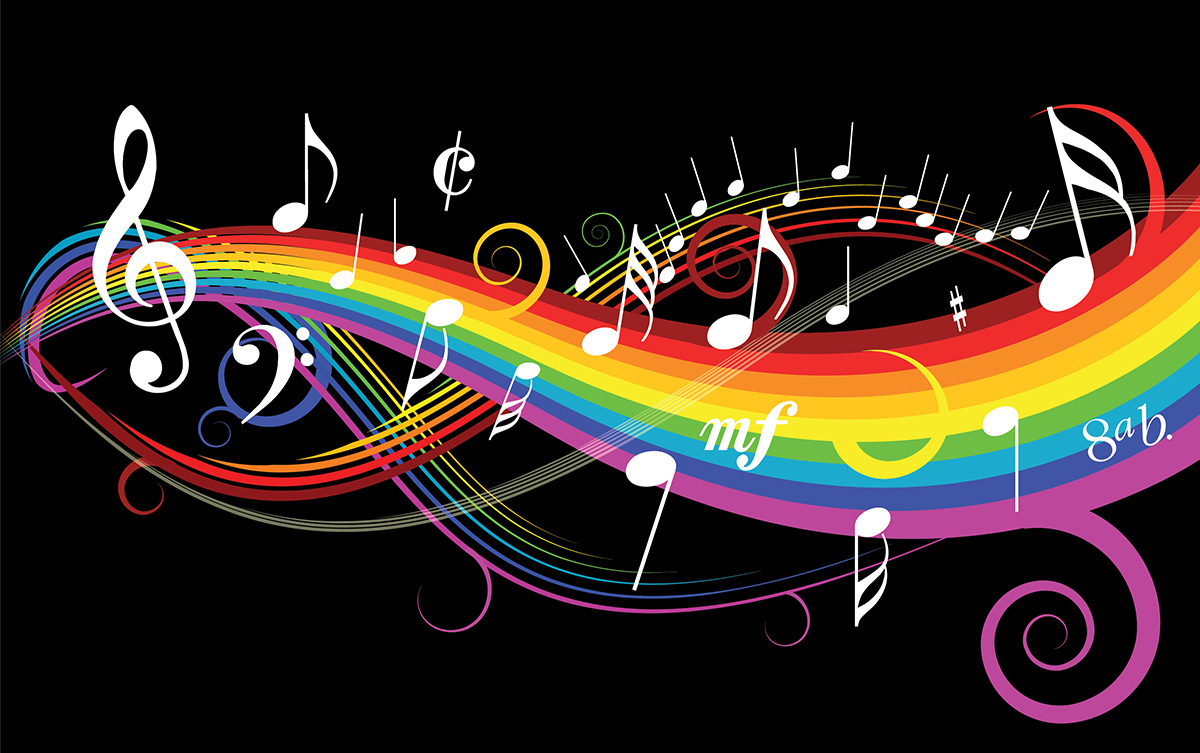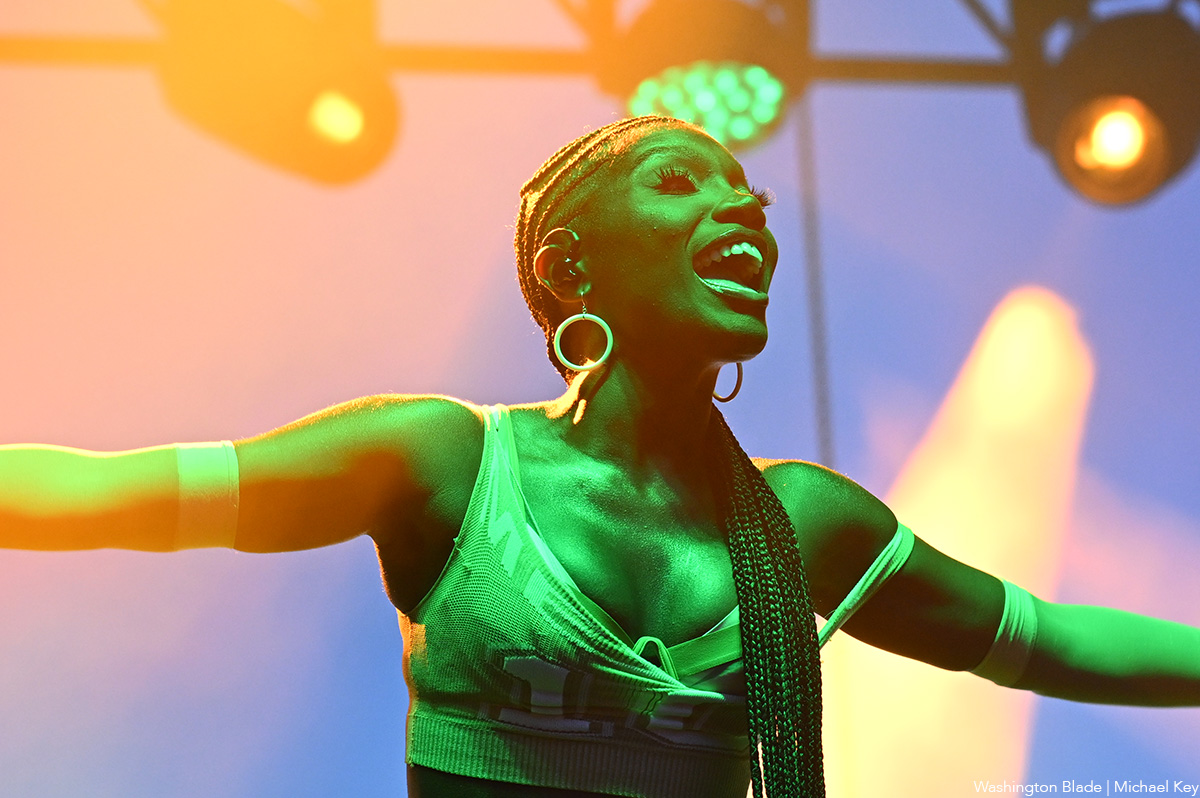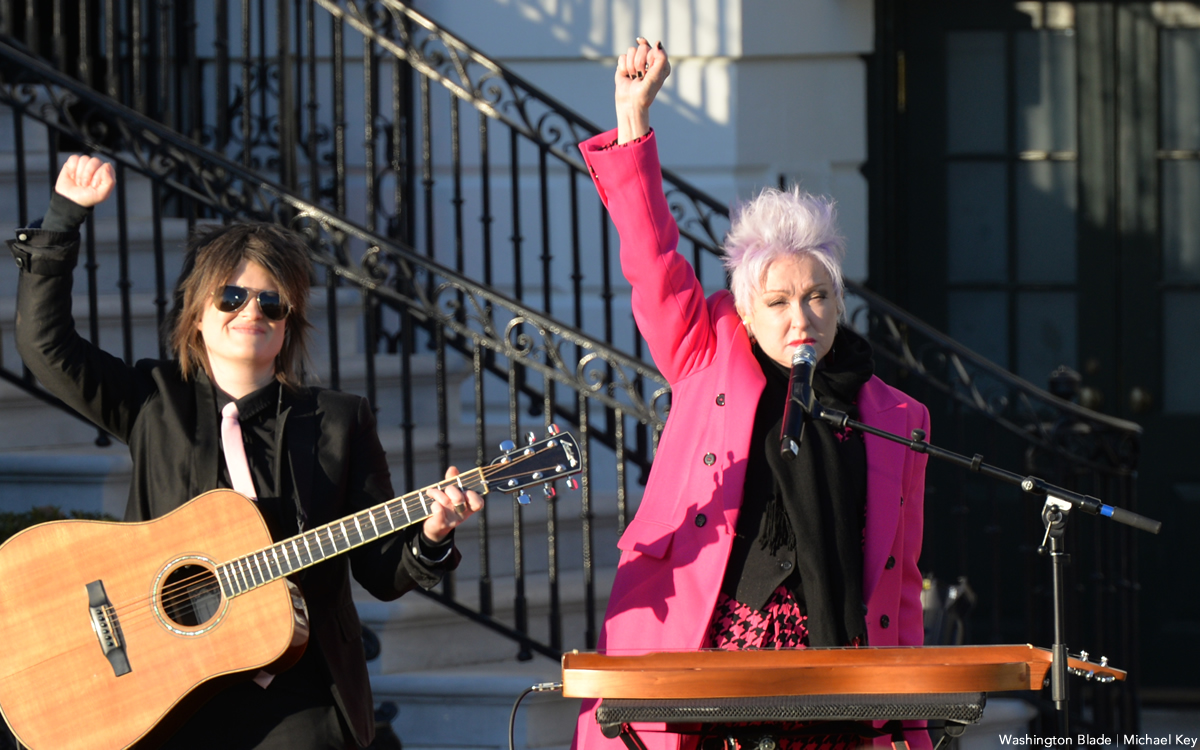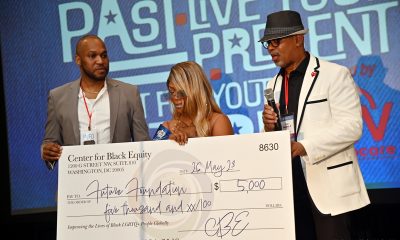Music & Concerts
Strong releases from Kesha, Trainor ignite airwaves, streaming platforms
’TiK ToK’ hitmaker returns with mature-but-still-playful new sound, lyrics


We’re off to what’s shaping up to be a deliciously big year for women in pop. Selena Gomez and Halsey released new albums in January and Meghan Trainor and Kesha (stylized as Ke$ha until the release of her 2017 “Rainbow”) have new albums out last week.
It’s hard to believe that “TiK ToK,” Kesha’s first single as a solo artist, reached the no. 1 spot on Billboard exactly one decade ago. Her 2010 debut album “Animal” was followed by the platinum EP “Cannibal” in the same year. Singles like “We R Who We R,” “Die Young,” “Timber” and “Blow” still dominate club play. If pop music continues to be remembered by decades, the 2010s may well be the decade of Kesha — certainly the first half. Bawdy, dancey, unapologetically electronic, masterfully produced — these are all defining features of Kesha’s artist output. Vocal virtuosity is sidelined in favor of her distinctive party girl persona.
Kesha’s 2017 comeback “Rainbow” was something of an anomaly. With singles like “Praying,” she was clearly trying to revise her previously successful formula and add some depth to her artist production. “High Road” is the brilliant culmination of her previous work, seamlessly incorporating a variety of genres, yet it remains fiercely distinct. It is both a return to the Kesha of “TiK ToK” and marked evolution from that Kesha — a perfect balance of playful and serious, innovative and mature.
Take, for instance, lead single “Raising Hell,” which features Big Freedia. It’s a bouncy anthem that manages a thumping pop bassline and churchy, gospel feel at the same time. There is even a fabulous breakdown with bluesy organ. It’s refreshing to see the effects of gospel beyond Kanye West. Like “Praying,” Kesha cleverly appropriates religious language for her un-religious party anthem: “I’m all fucked up in my Sunday best/no walk of shame ’cause I love this dress/hungover, heart of gold, holy mess/doin’ my best, bitch, I’m blessed.” Kesha has always been lyrically strong, if not vocally, but “High Road” takes it to a new level. In lieu of the empty monotony of overdone, feel-good tropes, Kesha has a sense of humor.
The song “Honey” is different sort of song. The influence of rock groups like the Red Hot Chili Peppers is evident from the first guitar stroke. The stripped down instrumentation gives one of several opportunities on this album to appreciate Kesha’s soulful vocals. The song “Cowboy Blues” is another outlier, an unexpected hipster-girl tune with ukulele — think Zooey Deschanel’s band She & Him. But, as usual, Kesha puts her own spin on quirky.
Perhaps, the biggest surprise of the new album is “Resentment,” which features Beach Boys co-founder Brian Wilson, country artist Sturgill Simpson and the singer Wrabel. It is a beautiful country song and it could reasonably find its way onto the country charts. It’s a crossover into country from the other direction, a sort of reverse Faith Hill. It perhaps speaks to the vitality of country music in the past several years thanks to artists like Margo Price.
But in addition to the surprises, Kesha still leaves us with a healthy dose of raucous party music. “Kinky” is a delightful up-tempo dance track that celebrates sexual freedom and polyamory: “Monogamy ain’t natural/at least not for me and you/we’re in our own dimension/we’re making up our own rules.” It’s like the 2020 update to Katy Perry’s now classic (and now utterly uncontroversial) “I Kissed A Girl.” And as always, Kesha gives us a taste of the carnivalesque with “Potato Song (Cuz I Want To).”
“Treat Myself” is Meghan Trainor’s third studio album, and she’s come a long way since her emergence on the charts with the release of her no. 1 debut album “Title” in 2015. The singles “All About That Bass” and “Like I’m Going To Lose You,” which features John Legend, both from her debut, have over 500 million streams on Spotify. The new album has been in progress for some time, and is a slick, well-produced pop album.
The catchy lead single “No Excuses” was released in 2018 and has already had extensive radio play. But the album is fairly robust and offers several other excellent tracks. “Wave,” released as a single last fall, is a heavily electronic anthem that showcases Trainor’s well-harnessed vocal abilities. Of the singles, it’s hard not to be a partisan of “Nice to Meet Ya,” a collaboration with Nicki Minaj. It has similar feel to hip-hop dance tracks from the early 2000s and the way Minaj’s punctuates the last word in each line of her verse is in some ways reminiscent of songs like J-Kwon’s 2000 “Tipsy.”
“Genetics,” a collaboration with the Pussycat Dolls (who knew they were still around?), is an impeccable dance track. The bass line would make even the most resistant person in the friend group sway along. It makes me nostalgic for the Pussycat Dolls of “Don’t Cha” and “When I Grow Up.” And Trainor gives some needed vocal competence to the pulsing beat.
Perhaps the most delightful part of the new album is the song “Funk,” Trainor’s funky answer to Mark Ronson and Bruno Mars’ 2014 “Uptown Funk.” In fact, it feels like it might have started an improvised riff on it. But it strikes a groove all of its own, and the horns take on something of Michael Jackson feel, as the chorus cleverly hammers away: “I miss the way we used to funk.” It is an inspired new direction for Trainor’s music. But if there is one thing to reproach Trainor for, it’s that her lyrics peddle in endless strings of cliché. She could stand to learn a thing or two from Kesha on that front.
Music & Concerts
Washington chorale kicks off Christmas with vibrant program
‘Thine Own Sweet Light’ concerts planned

The full Washington Master Chorale will return for its annual holiday concert tradition with “Thine Own Sweet Light” on Friday, Dec. 19 and Sunday, Dec. 21 at St. Ann’s Catholic Church (D.C.) and Church of the Epiphany (D.C.).
The concert will feature the rich sounds of the 50-voice, a cappella chorus performing lush, seasonal choral music inspired by the theme of light. Highlights include Edvard Grieg’s “Ave Maris Stella,” Eric Whitacre’s “Lux Aurumque,” and Christopher Hoh’s “Holy, Holy, Holy is the Lord God of Hosts.” The program will also present a new work by Barcelona composer Josep Ollé i Sabaté, along with charming holiday folk songs and seasonal favorites.
For more details, visit the Washington Master Chorale website.
Music & Concerts
Queer mega stars (and allies) ready to take D.C. stages this fall
Watch LGBTQ icons light up stages across the DMV as they sing, dance, and drag their way through spectacular shows.

One of the best ways to welcome fall is by catching LGBTQ performers (and their allies) lighting up some of the D.C. area’s biggest stages. From country and pop to drag and rock, the season is packed with shows you won’t want to miss.
Maren Morris – The country, rock, and pop diva—known for hits like “The Bones” and for standing up against Nashville’s anti-LGBTQ voices—takes the stage at Wolf Trap (1551 Trap Rd, Vienna, Va.) on Friday, Sept. 12 at 8 p.m. Tickets start at $64.
RuPaul – The mother of modern drag and host of “RuPaul’s Drag Race” will spin a DJ set at Echostage (2135 Queens Chapel Rd NE) in Northeast D.C. on Sept. 20. Before RuPaul swaps wigs for headphones, Trade and Number 9 owner Ed Bailey will warm up the decks. For tickets and details visit echostage.com.
Conan Gray – The queer pop prince, celebrated for his Gen Z anthems like “Heather” and “Maniac,” brings his Wishbone Pajama Show to EagleBank Arena in Fairfax, VA, (4500 Patriot Cir) on Sept. 20 at 8 p.m. Tickets start at $113. For more info visit shop.conangray.com/pages/tour.
All Things Go Music Festival – With a lineup that includes Noah Kahan, Lucy Dacus, Kesha, Clairo, Doechii, and more, the beloved LGBTQ-friendly festival takes over Merriweather Post Pavilion (10475 Little Patuxent Pkwy, Columbia, Md.) Sept. 26–28. For tickets and details visit allthingsgofestival.com.
BERTHA: Grateful Drag – This unique tribute brings drag artistry and the sounds of the Grateful Dead to The Atlantis (2047 9th St NW) on Sept. 27. Tickets start at $47 at theatlantis.com.
Peach PRC – Rising Australian pop star and out lesbian, whose confessional tracks like “Perfect for You” and “Forever Drunk” have made her a queer TikTok darling, performs at The Atlantis on Sept. 29 at 6:30 p.m. The show is general admission only. Additional details are on theatlantis.com.
Addison Rae – The TikTok star-turned-pop princess, who’s crossed over into music with glossy hits like “Diet Pepsi” brings her sold out show to The Anthem (901 Wharf St., S.W.) on Sept. 30. Tickets are sold out, but resale options start around $80. For more info visit theanthemdc.com.
The Rocky Horror Picture Show 50th Anniversary – Celebrate the cult classic that’s been a queer midnight-movie staple for decades, with Barry Bostwick (a.k.a. Brad Majors) at the Warner Theatre (513 13th St., N.W.) on Oct. 2 at 8 p.m. Tickets start at $41 via Ticketmaster.
Chaka Khan, Patti LaBelle, Gladys Knight & Stephanie Mills – Four legends, one stage. Between Khan’s funk, LaBelle’s soul, Knight’s R&B, and Mills’ powerhouse vocals, this concert at Capital One Arena (601 F St NW) on Oct. 3 at 8 p.m. promises pure diva magic. Tickets start at $103. For more details visit capitalonearena.com.
Lorde – Joined by The Japanese House and Chanel Beads, the Grammy-winning New Zealand singer-songwriter behind “Royals” and “Solar Power” returns to The Anthem on Oct. 4 at 7 p.m. Lorde has long been embraced by queer fans for her dreamy pop and subversive lyrics. For more info visit theanthemdc.com.
Andy Bell (of Erasure) – The British queer rock icon, best known for synth-pop classics like “A Little Respect” and “Chains of Love,” brings his Ten Crowns Tour to the Lincoln Theatre (1215 U St., N.W.) on Friday, Oct. 17 at 8 p.m. Tickets are $90.45.
Doechii – The self-described queer “Swamp Princess”—and WorldPride 2025 headliner—continues her breakout year with the Live from the Swamp Tour at The Anthem on Oct. 21 at 8 p.m. Known for blending rap, R&B, and avant-garde performance art, Doechii is one to watch. Tickets start at $153.
Neon Trees – The out-and-proud Utah rockers behind “Everybody Talks” and “Animal” perform at the Lincoln Theatre on Friday, Oct. 24 at 8 p.m. Lead singer Tyler Glenn, who came out publicly in 2014, has become a strong queer voice in alternative rock. For tickets and info visit impconcerts.com.
Sasha Colby – The “RuPaul’s Drag Race” Season 15 winner strips down on the Stripped II Tour at the Warner Theatre on Nov. 2 at 8 p.m. Tickets available now on Ticketmaster.
Lola Young – The bisexual indie-pop sensation, whose raw songwriting has earned her millions of TikTok fans and multiple chart soaring hits visits The Anthem on Nov. 9 at 8 p.m. Tickets are still available.
Opera Lafayette
Featuring Mary Elizabeth Williams as Dido
+ Elijah McCormack, Chelsea Helm
Oct. 16, 7:30 p.m.
Sixth & I
PostClassical Ensemble
The Pale Blue Do: A Musical Voyage Inspired By Nature
Featuring National Geographic’s Enric Sala, Guest Curator
Wednesday, November 19, 7:30 p.m.
Terrace Theater
Washington Concert Opera
Starring Kate Lindsey, Theo Hoffman, John Moore, and Fran Daniel Laucerica
Nov. 23, 6 p.m.
Lisner Auditorium
Washington Master Chorale
An intimate a capella concert taking place in an architectural jewel, featuring cherished choral gems from Anglican and Catholic tradition and early American hymns. The concert will also present the world premiere of Christopher Hoh’s Holy, Holy, Holy is the Lord God of Hosts, and hymn singing featuring Robert Church, organist and choirmaster at St David’s.
Oct. 18, 7:30 p.m.
October 19, 5 p.m.
St. David’s Episcopal Church
Music & Concerts
Cyndi Lauper ready to have fun in Virginia
Superstar to bring final leg of farewell tour to Jiffy Lube Live

Superstar Cyndi Lauper will bring the final leg of her farewell tour “Girls Just Wanna Have Fun” to Bristow, Va., on Thursday, July 24 at Jiffy Lube Live.
Lauper’s international Farewell Tour – her first major headlining run in a decade – kicked off in North America last October, and included her first time ever headlining (and selling out) Madison Square Garden. Lauper’s performances have earned raves from the New York Times, Rolling Stone, Billboard, and many more, and surprise guests have included Chaka Khan, Sam Smith, and Hayley Williams. The tour just visited the U.K. and Europe, and will head to Australia and Japan in April.
Tickets are available on Live Nation’s website.
-

 Baltimore3 days ago
Baltimore3 days ago‘Heated Rivalry’ fandom exposes LGBTQ divide in Baltimore
-

 Real Estate3 days ago
Real Estate3 days agoHome is where the heart is
-

 District of Columbia3 days ago
District of Columbia3 days agoDeon Jones speaks about D.C. Department of Corrections bias lawsuit settlement
-

 European Union3 days ago
European Union3 days agoEuropean Parliament resolution backs ‘full recognition of trans women as women’




















